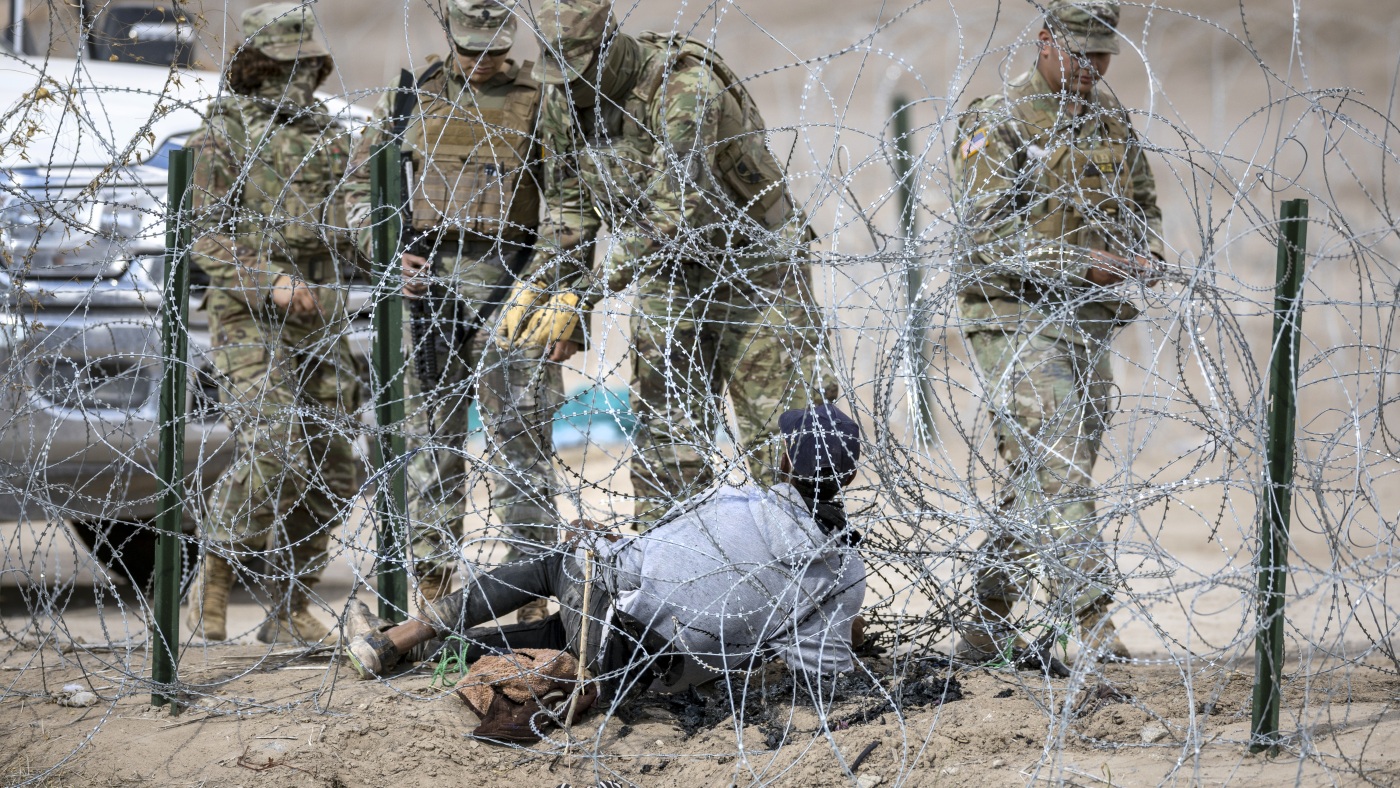Texas National Guard troops try to untangle an immigrant caught in razor wire after he crossed the U.S.-Mexico border into El Paso, Texas, on Jan. 31, 2024. The Trump administration now plans to use Guard troops for law enforcement activities, including “night operations and rural interdiction,” as well as “guard duty and riot control” inside immigrant detention facilities.
John Moore/Getty Images
hide caption
toggle caption
John Moore/Getty Images
National Guard troops would be used in immigration-enforcement activities, including in “night operations and rural interdiction,” as well as “guard duty and riot control” inside detention facilities, according to a memo from the Department of Homeland Security obtained by NPR.
DHS officials requested 20,000 National Guard troops three weeks ago, but this memo details what duties those troops will be asked to perform. The memo, dated May 9, from Andrew Whitaker, the executive secretary at DHS, says the department will need up to 3,500 Guard personnel for its requirement to “Attempt to Locate — Fugitives.” Another 2,500 Guard soldiers would be needed for detention support.
The memo says up to 10,000 troops would be needed for transportation support, including “intra-and inter state transport of detainees/unaccompanied alien children.” And another 1,000 troops would be used for such duties as document translation and interview assistance.
The Pentagon has not yet approved the request.
DHS Assistant Secretary Tricia McLaughlin told NPR: “DHS requested 20,000 National Guard members to help carry out the President’s mandate from the American people to arrest and deport criminal illegal aliens. The Department of Homeland Security will use every tool and resource available to get criminal illegal aliens including gang members, murderers, pedophiles, and other violent criminals out of our country. The safety of American citizens comes first.”
This would be the first time the National Guard has been asked to enforce an immigration crackdown within the United States, Sen. Jack Reed, the ranking Democrat on the Senate Armed Services Committee, said at a hearing with Army officials Thursday.
Army Secretary Dan Driscoll told the committee that while the service is preparing to provide the forces, he had no details on what the troops would be doing, and said he would not deploy the Guard “for any unlawful purposes.” There are a number of unanswered questions, officials say, including whether sending troops from one state to another is lawful.
Multiple U.S. officials told NPR the Pentagon is still working with state governors to determine which states will provide the troops, though they are expected to come mostly from Republican-led states. The troops could begin deploying as early as next month.
One U.S. official not authorized to speak publicly told NPR that in meetings between DHS and the Pentagon, DHS officials kept referring to “sanctuary cities,” as among the necessary locations for immigration enforcement operations.
This story originally appeared on NPR


